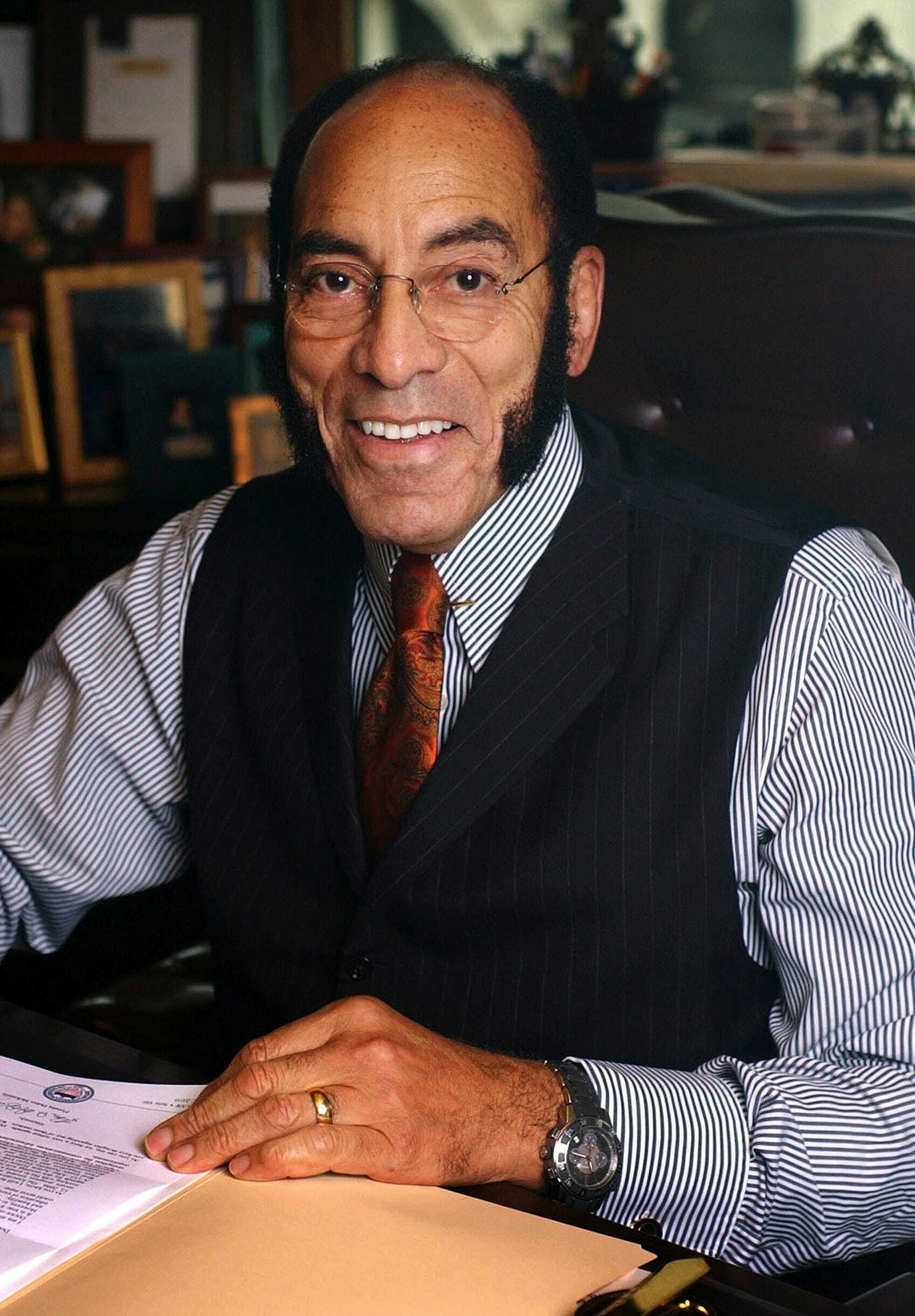
After his release from imprisonment in South Africa three decades ago, Nelson Mandela visited the New York headquarters of Black Enterprise to meet with top African American business executives, entrepreneurs, and leaders — and in particular, Earl Graves Sr.
“We asked for this meeting because of our desire to learn the principles and strategies of economic empowerment for blacks in our country,” Mandela told the press at the time. “Until we have a very strong business class, it is going to be difficult for us to make real progress.”
Mr. Graves, who was widely considered to be the ultimate champion of black business, launching Black Enterprise in 1970 to not only chronicle the rise of African American entrepreneurs but also provide the tools for African Americans to succeed in the business mainstream, died on April 6 at the age of 85. The cause of death of the longtime resident of Sag Harbor was complications connected to Alzheimer’s disease.
Earl Gilbert Graves, the son of a Caribbean immigrants, was born in Brooklyn, New York, on January 9, 1935. His father was a garment district worker and his mother a homemaker. He graduated in 1958 with a bachelor’s degree in economics from what is now Morgan State University in Baltimore. He was a department store security guard before working as an administrative assistant on the staff of Senator Robert F. Kennedy of New York. After Mr. Kennedy’s assassination in 1968, Mr. Graves was a management consultant advising corporations on urban affairs and economic development. He then founded his magazine, which is now headed by his son, Earl Graves Jr.
In his award-winning business bestseller “How To Succeed In Business Without Being White,” Mr. Graves stated his life-defining purpose for founding Black Enterprise: “The time was ripe for a magazine devoted to economic development in the African American community. The publication was committed to the task of educating, inspiring and uplifting its readers. My goal was to show them how to thrive professionally, economically and as proactive, empowered citizens.”
Mr. Graves became a trailblazing entrepreneur in his own right, building Black Enterprise from a single-magazine publishing company a half-century ago to a diversified multimedia business spreading the message of financial empowerment to more than 6 million African Americans through print, digital, broadcast, and live-event platforms. As such, Black Enterprise was one of two companies that would appear on the “Black Enterprise 100s” — the publication’s annual rankings of the nation’s largest black-owned businesses — each of its 50 years. At one point, Mr. Graves would operate two companies on the list, including Pepsi-Cola of Washington, D.C., one of the nation’s largest soft-drink distributors owned by African Americans.
Mr. Graves’s influence and reach also extended into the mainstream of corporate America. One of the few African Americans to serve on the boards of major corporations such as American Airlines, Daimler Chrysler, Rohm & Hass, and Federated Department Stores, he was a staunch advocate for African American inclusion in corporate governance. He was also a tireless champion of major corporations doing business with black-owned companies.
Mr. Graves was also a force in civil rights, philanthropy, and politics, playing a pivotal role in galvanizing support for the election of Barack Obama as president through his endorsement in Black Enterprise and service as a surrogate campaigning on the candidate’s behalf. Before that, Mr. Graves’s fight for racial justice and economic parity earned him the NAACP Spingarn Medal, the organization’s highest honor, in 1999.
During the past week, as word of the death of Mr. Graves spread, tributes came in from prominent people, including Mr. Obama’s vice president. “Jill and I send our heartfelt condolences to the entire Graves family,” wrote the likely Democratic nominee for president, Joe Biden. “As the founder of Black Enterprise, Earl Graves Sr. was a trailblazer in his own right, a leader in the American business community, and paved the way for many Black entrepreneurs to realize their dreams.”
Mr. Graves’s wife, Barbara Kydd Graves, predeceased him in 2012. He is survived by three sons, Earl Jr., Johnny, and Michael; as well as eight grandchildren.